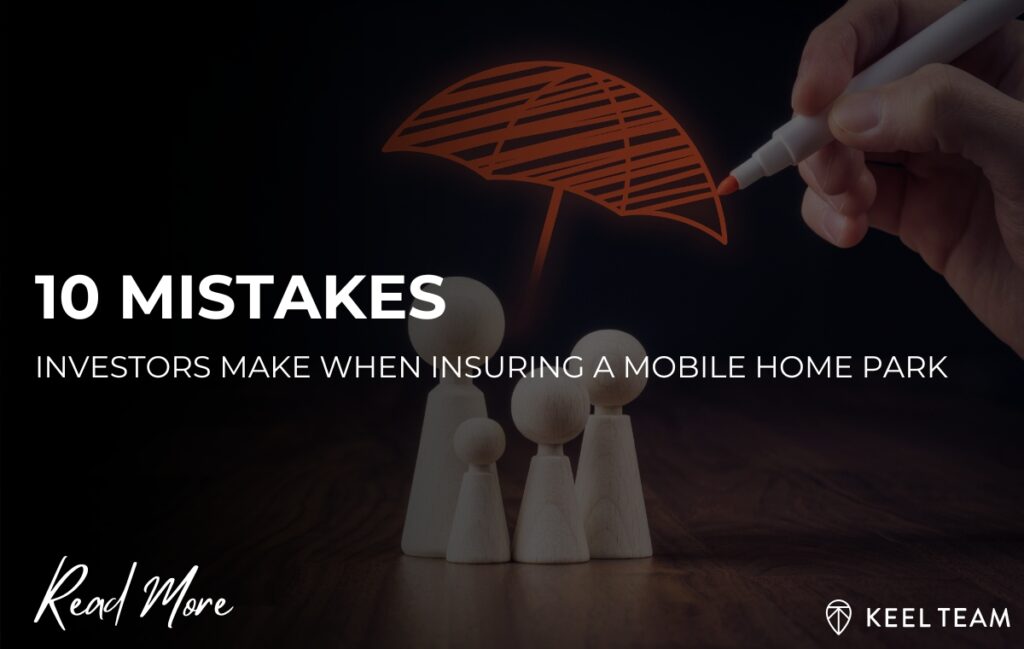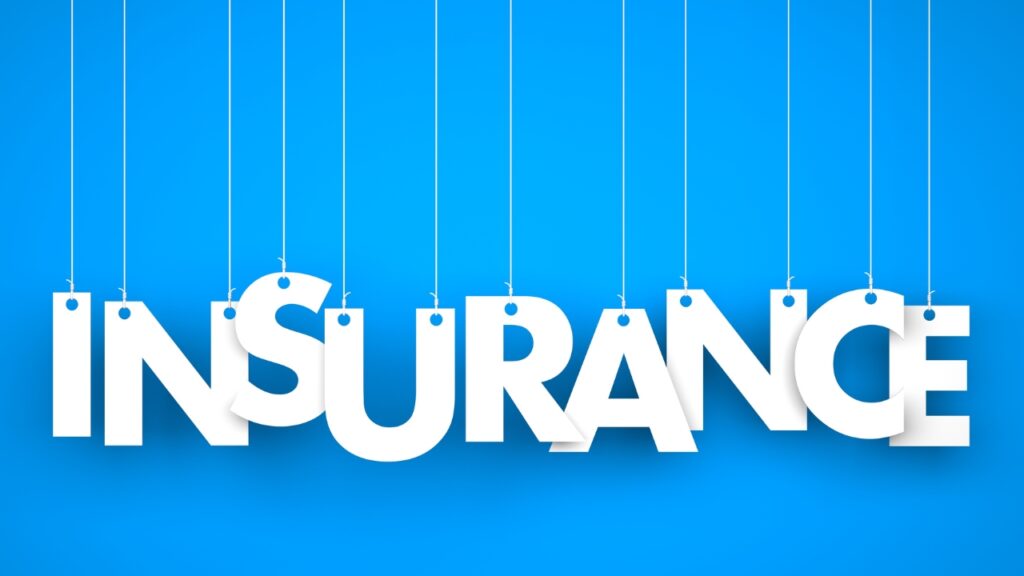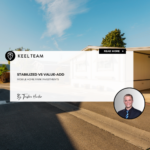10 Mistakes Investors Make When Insuring a Mobile Home Park
-
 Tristan Hunter - Investor Relations
Tristan Hunter - Investor Relations

When insuring a mobile home park, many owners make costly mistakes. Understanding these pitfalls and how to avoid them can save significant money and hassle. Here are the top ten mistakes investors make when insuring a mobile home park.
1. Failure to List/Insure All Improvements on Your Policy
Mobile home park owners often neglect to list all improvements on their insurance policy. Above-ground utility infrastructure, signs, fences, and smaller buildings frequently go uninsured. This oversight can result in substantial out-of-pocket expenses if these structures are damaged.
Solution: Create a detailed inventory of all mobile home park improvements. Ensure every structure, regardless of size, is listed and insured on your policy.
2. Undervaluing Your Property
Many mobile home park owners insure their property based on its tax value or the prior owner’s valuation. This often leads to underinsurance.
Solution: Get a professional appraisal to determine the accurate replacement cost of your property. Insure it for this amount to ensure full coverage in case of damage.
3. Neglecting to Insure Park-Owned Homes
Some mobile home park owners skip insuring park-owned homes because each home isn’t individually worth much. However, if a storm destroys multiple homes, the cumulative loss can be significant.
Solution: Insure all park-owned homes. While a single $10,000 loss may seem manageable, losing ten homes at once could severely impact your finances.
Looking for insights into Mobile Home Park Insurance? Download Mobile Home Park Insurance 101: Beginner’s Guide and learn more about this intricate topic.
4. Buying Insurance from a Non-Specialty Agent
Non-specialty agents may lack the necessary knowledge and contacts to get you the right coverage at a good premium. They may not understand the unique needs of mobile home parks.
Solution: Work with an agent who specializes in mobile home park insurance. They typically have the expertise and connections to secure the best coverage for your needs.
5. Not Buying Loss of Business Income and Extended Loss of Business Income Coverage
These coverages are critical for mobile home park owners. They ensure that you continue to receive income if your mobile home park is damaged and unable to operate.
Solution: Include both loss of business income and extended loss of business income coverage in your policy. This will help keep your finances stable during repairs or rebuilding.
6. Paying for the Insurance of Every Contractor
If contractors working for you don’t have their own insurance, your insurance company may have to cover their claims. This can increase your premiums and liability.
Solution: Require all contractors to provide Certificates of Insurance before they begin work. This ensures they have their own coverage, protecting you from additional liability.

7. Failure to Include Data Breach and Tenant Discrimination Coverage
Data breaches and tenant discrimination claims are becoming more common. Failing to include coverage for these risks can lead to significant financial losses.
Solution: Add data breach and tenant discrimination coverage to your policy. This protects you from these growing threats.
8. Misclassifying Employees as Independent Contractors
Classifying an employee as an independent contractor doesn’t change their legal status. Their job functions and how they perform them define their status.
Solution: Correctly classify all workers according to their job functions and duties. Ensure you comply with labor laws to avoid penalties and uncovered liabilities.
9. Not Buying Workers’ Compensation Insurance
If you have employees, you need workers’ compensation insurance. This covers medical expenses and lost wages for employees injured on the job, potentially for life.
Solution: Purchase workers’ compensation insurance for all employees. This coverage is legally required and protects you from significant liability.
10. Not Including Mobile Home Sales Coverage on Your Policy
When you sell mobile homes, you need general liability insurance that covers the mobile home park, any home sales, and all associated operations. Without it, you leave yourself exposed to significant risks.
Solution: Ensure your policy includes coverage for mobile home sales. This comprehensive coverage protects your entire operation, including sales activities.
Conclusion
Avoiding these common insurance mistakes can help save mobile home park owners from significant financial losses and operational disruptions. By carefully evaluating and updating your insurance policies, you can ensure that you have comprehensive coverage tailored to your unique needs. Partner with a knowledgeable, specialized agent to help navigate these complexities and protect your investment.
Taking these proactive steps helps you safeguard your mobile home park and ensures its potential long-term success. Always stay informed and review your policies regularly to adapt to any changes in your operations or the insurance landscape.
Why stop here? Reach out to us below and explore this asset class in depth! We’re here to assist.
Learn more about mobile home park investing.
Interested in learning more about mobile home park investing? Get in touch with us today to find out more.
Disclaimer:
The information provided is for informational purposes only and is not investment advice or a guarantee of any kind. We do not guarantee profitability. Make investment decisions based on your own research and consult registered financial and legal professionals. We are not registered financial or legal professionals and do not provide personalized investment recommendations.

Tristan Hunter - Investor Relations
View The Previous or Next Post
Subscribe Below 👇





